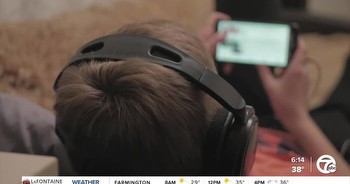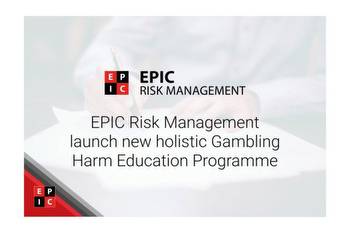How Teen Online Gambling Is a Growing Concern for Parents
As more teens and young adults have access and exposure to online gambling, only one in four parents say they havetalked to their teen about some aspect of virtual betting, according to a national poll by C.S. Mott Children's Hospital.
Most parents (over half) are not aware of their state’s legal age for online gambling, and 1 in 6 admit they likely wouldn’t know if their teen or young adult were betting online.
Young people are in front of screens daily—gambling advertisements have been growing tremendously, with frequent ads on TV, delivered through social media, and in-person at sporting events. They entice the teens and young adults with popular entertainers and sport figures who are featured in their ads that imply you can play with no risk of losing.
Your child's virtual playground gives them access to many places they legally wouldn't be allowed to enter in real life. Mott Poll co-director Sarah Clark, M.P.H., said:
“Teens and young adults may have a difficult time going into a casino unnoticed but they have easy access to a variety of betting and gambling options... This expanded accessibility has increased exposure to the risks of underage betting, but there is little regulation or conversation around this problem.”
Parents are concerned about the risks of online betting for their teen and young adults. The majority (83 percent) fear they will go into debt, while 77 percent worry about their child developing a gambling addiction. More than half (51 percent) think about how it will ruin their credit score, and over a quarter (27 percent) are afraid it will lead to substance abuse.
Warning signs your teen may be gambling online:
- Your teen suddenly having cash or spending money, whether that means they are consistently short on cash or have more than usual amounts of money on hand
- Mood changes, signs of depression, anxiety, withdrawn, excessive sleeping, or irritability
- Poor academic performance, skipping classes
- Lack of interest in their hobbies, interests, family, and friends
- A preoccupation with gambling sites, apps, and games or sports results (constantly checking their phone or other screens)
- Behaving secretly or spending excessive time isolated in their room
3 Tips to Talk With Your Teen About Online Betting
As with most risky behavior, it starts with conversations, and the earlier the better. They can be short chats, but they need to be frequent and meaningful.
- Discuss gambling and the risks involved, from compulsive behavior to having financial problems including debt, poor FICO scores and even teens that have started stealing from their family to satisfy their addiction.
- Besides being illegal for teens, online gambling can easily become addictive and is linked to mental health problems such as low self-esteem, anxiety, and depression.
- Point out to them that there are so many gambling sites and apps because they make much more money than they give away to players. Explain that gambling companies are always at an advantage—they are structured in a way that they will always make more money than they pay out to gamblers. Otherwise, they would go out of business quickly.
If your teen has an addiction to gambling or is suffering mental health issues that are causing them to engage in destructive behavior, it’s time to reach out for help. Talk to your school counselor or find a local therapist; in some situations, some parents have determined residential treatment has been helpful in breaking this cycle of addiction.
Need more information? Different states have gambling hotlines that can point families to treatment for gambling addiction.





































